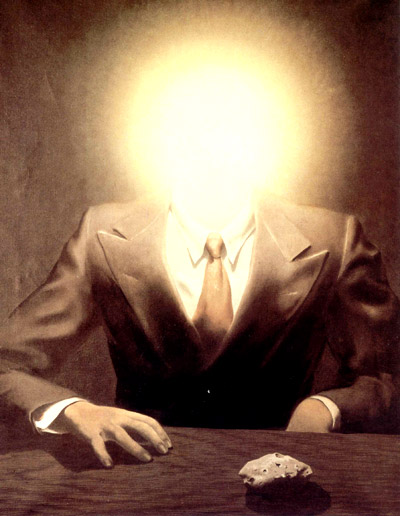October 23, 2008
From Descartes to Cotard: I think that I don't exist

Following the discussion of Cotard's Syndrome on English Heretic earlier this year (mentioned here), there's a fascinating essay by Thomas Metzinger ("Why Are Identity Disorders Interesting To Philosophers?") which considers the implications for the philosophy of mind of conditions such as Cotard's.
- Obviously, any good future philosophical theory of mind should be able to
incorporate the “existence denial” exhibited by Cotard subjects as an important
phenomenological constraint, one to be satisfied by its own conceptual proposals. There exists a whole range of neurological disorders characterized by an unawareness of specific deficits following brain injuries, all of them falsifying the Cartesian notion of epistemic transparency for phenomenal self-consciousness, i.e. the idea that one cannot be wrong about the contents of one’s own mind, that unnoticed errors are impossible because the light of knowledge shines through and through the self. In pure and extreme versions of the Cotard delusion we are confronted with a particularly interesting example of this type of representational configuration: Patients may explicitly state not only that they are dead, but also that they don’t exist at all. In other words, something that seems an a priori impossibility on logical grounds – a conscious subject truthfully denying its own existence – turns out to be a phenomenological reality. And phenomenology has to be taken serious. In this case the first lesson to be drawn is this: You can be fully conscious and still truthfully describe the content of your own phenomenal self-experience as “non-existence”. In other words, there are actual, nomologically possible representational configurations in the human brain, which lead truthful subjects into logically incoherent autophenomenological reports.
He continues:
- Claiming to be dead – in terms of a dead body - is not
the same as claiming to be non-existent. As Enoch and Trethowan write:
- Subsequently the subject may proceed to deny her very existence, even dispensing altogether with the use of the personal pronoun ‘I’. One patient even called herself ‘Madam Zero’ in order to emphasize her non-existence. One of Anderson’s patients said, referring to herself, ‘It’s no use. Wrap it up and throw “it” in the dustbin’
Metzinger compares Cotard's with mystical experiences of depersonalisation ("the only other phenomenal state-class in which speakers sometimes consistently refer to themselves without using the pronoun ‘I’"). These are the ecstatic parallel to Le Délire de Négation's destitution. (Perhaps there is a parallel between this 'delirum of negation' and the 'generic misanthropy' Dominic has written of.)
What's interesting to Metzinger, of course, is not so much the extreme psychotic states per se, but what they tell us about the way in which an 'ordinary' sense of personal identity is constituted. For Metzinger, the statement of the Cotard's sufferer "I don't exist" is not only possible, it is true. His neurophenomenology dethrones the idea that personal identity is any kind of substance or thing. Instead, it is a process which misrecongises itself as a thing. This is by no means the same as the standard, kitsch-Nietzschean notion that the self is a process, because, for Metzinger, the self only exists at the level of false appearances; it is the way that the process (mis)represents itself to itself. What happens is a reification of reflexivity - we move from certain patterns of self-modeling to the self, or, in even shorter hand, from self- to self. (For a detailed precis of Metzinger's Being No-One by the author himself, go here; for a discussion of Metzinger and Kant, see Speculative Heresy.)
James Trafford has written of the congruence of Metzinger's demolition of the self and the work of Ligotti, in particular the moment of dread revelation in Ligotti's stories when individuals come to recognise themselves as marionettes without a master. But I think that there's a broader affinity between Metzinger's anti-phenomenology and the Weird. Like Freud and Lacan but in a different register, one of Metzinger's achievements might be to have rendered personal identity as something inherently weird, in which the seeming depth of the self unravels into a Moebian surface, or a paradoxical, self-generating geometry worthy of Escher.
Posted by mark at October 23, 2008 03:18 PM | TrackBack